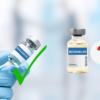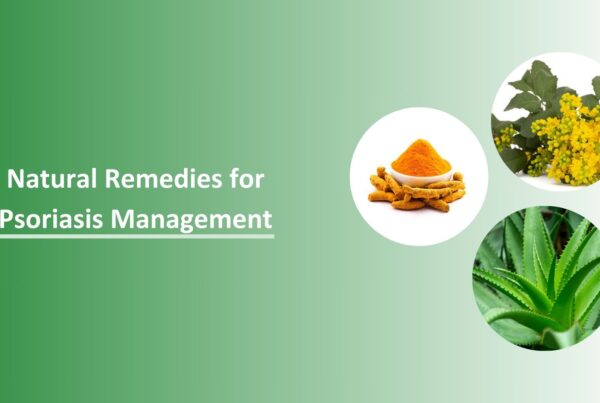April marks Irritable Bowel Syndrome (IBS) Awareness Month, a crucial time dedicated to raising awareness about this widespread yet often misunderstood disorder affecting millions worldwide.
Irritable Bowel Syndrome (IBS) is a prevalent gastrointestinal disorder characterized by symptoms such as cramping, abdominal pain, bloating, gas, and either diarrhea constipation, or a combination of both. It is a chronic condition that requires long-term management. While severe symptoms are rare, individuals with IBS can often manage their symptoms through dietary adjustments, lifestyle modifications, and stress management techniques. For those with more severe symptoms, treatment options include medication and counseling.
Types of IBS
IBS presents in different forms, including IBS with constipation (IBS-C), IBS with diarrhea (IBS-D), and IBS with mixed bowel habits (IBS-M), with specific symptoms determining the subtype.
Inheritance Patterns of IBS
The inheritance patterns of Irritable Bowel Syndrome (IBS) have been extensively researched, revealing a heritable component to the condition. Studies indicate an elevated risk of IBS among first-, second-, and third-degree relatives, suggesting a genetic influence. The genetic landscape of IBS is intricate, involving a mix of common genetic variants that contribute to a slight risk effect in most patients.
Notably, genetic risk in IBS can vary from common polygenic conditions to rare single-gene abnormalities. Research has also pinpointed specific genetic susceptibility loci for IBS, unveiling new target genes within previously unexplored pathways, such as neuronal adhesion.
Furthermore, there is evidence of shared genetic risk pathways between anxiety and IBS, offering insights into the effectiveness of psychoactive medications and behavioral therapies in managing IBS symptoms.
Prevalence and Statistics in Populations
IBS is a common condition, affecting up to 20% of the population worldwide. It is more prevalent in women than men and tends to develop in young adulthood. The global prevalence of Irritable Bowel Syndrome (IBS) is estimated at approximately 11.2%, though this statistic is subject to scrutiny due to considerable variations in published research. In India, the prevalence of IBS is estimated to be around 4.2% based on the Rome III criteria, as determined by a rural survey conducted in Uttar Pradesh, a northern state of the country. Urbanization, lifestyle shifts, and dietary habits similar to neighboring nations like Bangladesh and Malaysia are anticipated to contribute to a growing prevalence of IBS in India. The management approach for IBS primarily aims at alleviating symptoms and improving quality of life.
Causes of IBS
The exact cause of IBS is not known, but several factors are thought to contribute to its development. These include:
Gut dysbiosis: An imbalance in the gut microbiota has been linked to IBS.
Visceral hypersensitivity: People with IBS may have increased sensitivity to gut sensations, leading to pain and discomfort.
Motility disturbances: Abnormalities in gut motility, such as slow or fast transit times, can contribute to IBS symptoms.
Psychological factors: Stress, anxiety, and depression have been associated with IBS, although the exact relationship is not well understood.
Signs and Symptoms of IBS
The signs and symptoms of IBS can vary from person to person, but they typically include:
- Abdominal pain or cramping
- Bloating
- Gas
- Diarrhea or constipation
- The feeling of incomplete bowel movements
- Urgency to have a bowel movement
- Mucus in the stool
Navigating Diagnosis
Diagnosing Irritable Bowel Syndrome (IBS) centers on recognizing specific symptoms and evaluating the patient’s medical history. Utilizing the Rome IV criteria, IBS is identified based solely on symptoms and history, without the need for laboratory or imaging tests. A primary symptom is abdominal discomfort, often accompanied by changes in bowel habits.
During clinical assessments, patients describe their symptoms and medical backgrounds. Trained gastroenterologists can differentiate IBS symptoms from others. However, the lack of definitive tests often leads to delayed or inaccurate diagnoses, underscoring the importance of early detection for timely intervention. Psychological stress also influences IBS diagnosis and management.
Treatment and Management of IBS
There is no cure for IBS, but several treatments and management strategies can help alleviate symptoms. These include:
Dietary modifications: Avoiding trigger foods, such as high-FODMAP foods, can help reduce symptoms.
Stress management: Techniques such as relaxation therapy, mindfulness, and cognitive-behavioral therapy can help reduce stress and anxiety.
Medications: Over-the-counter or prescription medications, such as laxatives, antispasmodics, and antidepressants, may be used to manage symptoms.
Probiotics: Certain strains of probiotics have been shown to improve IBS symptoms.
Dietary Changes for Irritable Bowel Syndrome (IBS)
Soluble Fiber
Soluble fiber, found in foods like beans, fruit, and oat products, can help improve constipation in IBS by making stool soft and easier to pass. The Dietary Guidelines for Americans, 2020-2025 recommend that adults should get 22 to 34 grams of fiber a day, with soluble fiber being more helpful in relieving IBS symptoms. To prevent gas and bloating, it is recommended to add fiber-rich foods to the diet slowly, by 2 to 3 grams a day.
Low FODMAP Diet
The low FODMAP diet is a special diet that reduces or avoids certain foods containing carbohydrates that are hard to digest, known as FODMAPs.
FODMAPs include fruits such as apples, apricots, blackberries, cherries, mango, nectarines, pears, plums, and watermelon, or juice containing any of these fruits, canned fruit in natural fruit juice, or large amounts of fruit juice or dried fruit.
They also encompass vegetables such as artichokes, asparagus, beans, cabbage, cauliflower, garlic and garlic salts, lentils, mushrooms, onions, and sugar snap or snow peas. Dairy products such as milk, milk products, soft cheeses, yogurt, custard, and ice cream are also considered high in FODMAPs.
Additionally, wheat and rye products, honey, and foods with high-fructose corn syrup are included, as well as products containing sweeteners ending in “–ol,” such as sorbitol, mannitol, xylitol, and maltitol. The low FODMAP diet can help improve IBS symptoms, and it is recommended to try it for a few weeks to see if it helps.
Foods to Avoid
Certain foods may trigger IBS symptoms, and it is recommended to avoid them. These include foods high in fructose, such as apples, mangoes, and watermelon, processed foods containing high fructose corn syrup, such as sodas and candy, lactose, a sugar found in dairy products, such as cow’s milk and cream, ice cream, yogurt, and soft, unripened cheeses, fructans, a type of carbohydrate found in grains and vegetables, such as asparagus, broccoli, brussels sprouts, garlic, onions, and almost all types of bread, cereals, and pasta, Galatians, another type of carbohydrate found in beans, chickpeas, and lentils, and polyols, a common ingredient in artificial sweeteners.
Dietary changes can significantly improve IBS symptoms, and it is recommended to work closely with a gastroenterologist and nutritionist to identify trigger foods and make the necessary dietary changes. The low FODMAP diet, increasing soluble fiber intake, and avoiding trigger foods can help improve IBS symptoms and improve the quality of life for individuals with IBS.
Prevention of IBS
While IBS cannot be prevented entirely, certain lifestyle changes can help reduce the risk of developing the condition. These include:
Maintaining a healthy diet: Eating a balanced diet rich in fruits, vegetables, and whole grains can help promote gut health.
Managing stress: Techniques such as meditation, yoga, and exercise can help reduce stress and anxiety.
Avoiding trigger foods: Identifying and avoiding trigger foods can help reduce symptoms.
Market Size of IBS
The Irritable Bowel Syndrome (IBS) market is poised for significant growth in the coming years. With a global market size of USD 4634.2 million in 2021, it is projected to reach USD 12750 million by 2028, demonstrating a robust CAGR of 15.6% during the forecast period.
This expansion is fueled by advancements in understanding IBS mechanisms, the introduction of personalized Telemedicine, and a rising focus on patient-centric care. Despite disruptions caused by the COVID-19 pandemic, including interruptions in healthcare services and supply chains, the IBS market is anticipated to rebound as attention and resources are redirected toward addressing the virus.
IBS Awareness Initiatives in April
Every April marks Irritable Bowel Syndrome (IBS) Awareness Month, a globally recognized healthcare event dedicated to raising awareness about IBS. Throughout this month, various organizations worldwide conduct awareness campaigns and initiatives aimed at promoting early diagnosis, treatment, and preventive measures for IBS.
The campaigns primarily target populations at risk, including individuals under the age of 50, particularly women, those with a family history of IBS, and individuals dealing with anxiety, depression, or other mental health conditions. Hormonal therapy, such as estrogen therapy during or after menopause, is also identified as a factor that can increase the risk of developing IBS. These awareness efforts aim to educate the public about the condition and encourage proactive steps toward managing and preventing IBS symptoms.
Conclusion
By wearing the blue ribbon and participating in awareness-raising activities during IBS Awareness Month in April, we can make a meaningful difference in the lives of those affected by this condition. While there may not be a cure for IBS, increased awareness can lead to improved support and resources for individuals living with it. Together, let’s raise awareness, reduce stigma, and promote understanding of IBS to support those who struggle with its challenges every day.
Written By
Aswini PriyaMedical Content Writer
Reviewed By
Dr. AnchalMedico Expert
Last Updated
08 Apr 2024 | 10:00 AM (IST)










